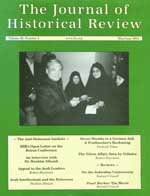Disney’s $140 Million Dud
Pearl Harbor. (2001) Genre: film (war, drama). Length: 183 minutes. MPAA rating: PG-13. Starring: Ben Affleck, Josh Hartnett, Kate Beckinsale, Alec Baldwin, Cuba Gooding, Jr., Mako, Jon Voight. Director: Michael Bay. Producer: Jerry Bruckheimer. Screenplay: Randall Wallace. Released by: Buena Vista. Grade: D. Scott L. Smith holds a B.A. in history from Idaho State University….

